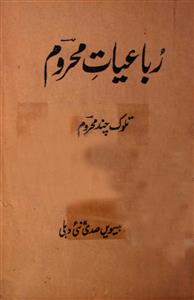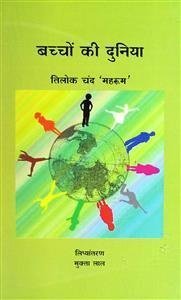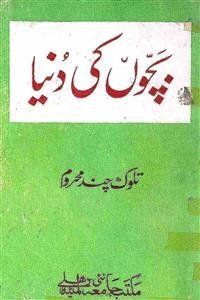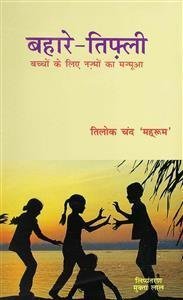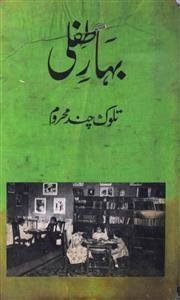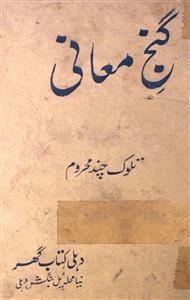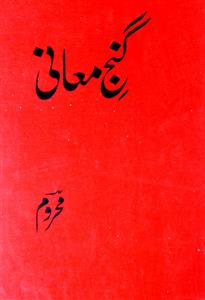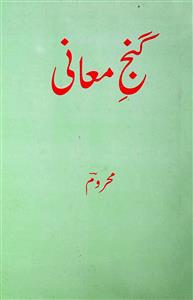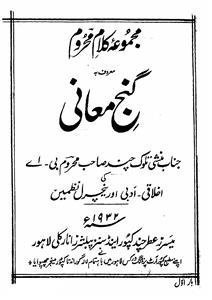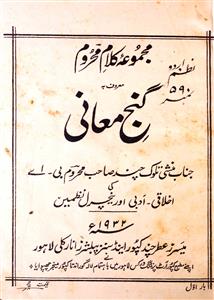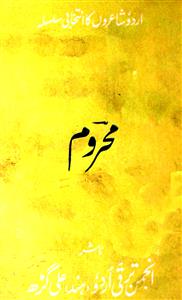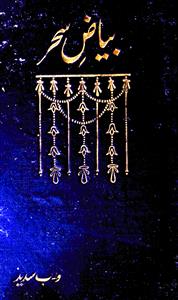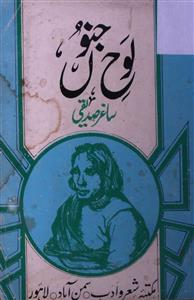 For any query/comment related to this ebook, please contact us at haidar.ali@rekhta.org
For any query/comment related to this ebook, please contact us at haidar.ali@rekhta.org
About The Book
علم عروض کے ماہرین میں رباعی کے بارے میں یہ خیال عام ہے یہ عربی شاعری کی پیدوار ہے، لیکن جدید تحقیقات اس بات کی جانب اشارہ کرتی ہیں کہ یہ خالص ایرانی صنف سخن ہے۔ فارسی میں رباعی گوئی کا یہ عالم ہے کہ کئی شعرا نے صرف رباعیات کی بدولت لازوال شہرت حاصل کی۔ لیکن اردو ادب میں اس کی مشکل اور ایک مخصوص بحر کی بنا پر وہ ترویج نہ مل سکی جو فارسی میں ہے۔ بنا بریں اردو مولانا حالی، اکبر الٰہ آبادی اور فراق ہی وہ شعرا ہیں جو اس حوالے سے جانے جاتے ہیں لیکن زیر نظر شاعر محروم کی رباعیاں بھی نہایت عمدہ ہیں۔ محروم ایک کہنہ مشق استاد شاعر کی حیثیت سے جانے جاتے ہیں۔ ان کی رباعیات میں فلسفہٴ اخلاق، مذہب اور روحانیت جیسے موضوعات پر بلند پایہ کلام ملتا ہے۔رباعی میں دلچسپی رکھنے والے قارئین کو محروم کی رباعیاں ضرور پڑھنا چاہیے۔
About The Author
Popular poet, Tilok Chand Mahroom was born on July 01, 1887 at a small place in tehsil Isa Khail, Miyan Wali in Punjab, Pakistan. After passing his middle school examination, he continued his studies further to acquire the degrees of Entrance, B. A. and S. A. V. as a private candidate. In 1908, he joined Mission School Dera Ismail Khan as a teacher. In 1933, he was appointed the head master of Cantonment Board Middle School. With the communal riots following India’s Partition in 1947, he migrated to Delhi from Rawalpindi.
Mahroom had a natural inclination towards composing verse which led him to write poems at an early age in his life. In 1901, when he was a middle school student, he wrote the elegy of Queen Victoria. During his days in high school, his poems found way in prestigious journals like Zamana and Makhzan. Mahroom practised all poetical forms. Many of his poems are marked by the spirit of patriotism. In this respect, he falls in the tradition of Suroor Jehanabadi and Brij Mohan Chakbast. He also wrote poems for children that enthuse and fill them with patriotic fervour. Ganj-e-Maani, Rubaiyat, Karvan-e-Watan, Nairang-e Maani, Bacchon Ki Duniya, and Bahaar-e-Tifli are the collections of his poetry. He breathed his last on 6th January 1966 in Delhi.
 For any query/comment related to this ebook, please contact us at haidar.ali@rekhta.org
For any query/comment related to this ebook, please contact us at haidar.ali@rekhta.org
